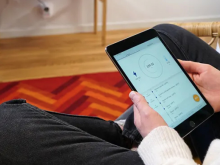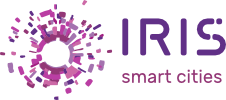
Several exciting projects studying energy consumption are underway at IRIS Smart Cities’ Gothenburg based partner HSB a ‘living laboratory’ featuring 29 apartments and residents testing the latest developments in sustainable living. Since October 2018, researchers at Chalmers University of Technology are testing their latest app helping residents organise and track their own energy use.
But doesn’t that exist already? Well, as with many of the cutting edge technologies on test, there is a significant bundle of new features. Above all, the“Ero” app makes it easy for HSB residents to plan which energy sources, such as wind or hydro power, they want to use and check their access to the electricity and district heating systems at certain times according to their preferences.
“Instead of just encouraging users to reduce their energy use, Ero gives tips on when it’s best to, for example, use household appliances or warm water based on which energy sources the user prefers”, says Sara Renström, postgraduate student at Chalmers.
Since the app downloads forecasts from energy networks, users can, for example, shower or charge their mobile when there is a large production of a desired energy type in the network. Or avoid doing so when a lot of fossil fuels are required in the electricity or district heating system. The energy suppliers also receive valuable forecasts on consumption data when the app is used.
More committed users
As smart information and communication technology is introduced into energy networks, housing and household appliances, new opportunities are created for the delivery of energy, consumption and interaction.
Ero is part of a larger venture for users to become more involved in their own energy use. The overall purpose is to explore which roles households can have in the smart energy network of the future and which digital solutions are needed to make this possible,” says Ulrike Rahe, project manager and professor of industrial design at Chalmers.
The app cultivates conscious and committed end-users of energy – and gives them the power and responsibility to decide. They can help reduce power peaks and environmental impact through their behavioural choices, and we regard the Ero app as a good way to try these opportunities,” says Ulf Hagman, development manager at Göteborg Energi, who is co-financing the project.
Easier to make good environmental choices
The technical solution requires that smart plugs be installed in the apartments to link the users to the property’s energy system and to collect energy data. In future smart homes, the functions will be in the houses instead.
The housing industry must act to reduce the energy consumption and carbon dioxide emissions of properties. The app that Chalmers developed makes it easier for users to make good environmental choices, says Rickard Malm, business developer at HSB Göteborg.
The next step is to investigate what the residents think of Ero and, based on their views, develop the system further. There is also a work in progress at Chalmers to create a functioning infrastructure at HSB Living Lab that makes it possible to connect Ero with other projects within smart energy systems.
18 Feb 2019

